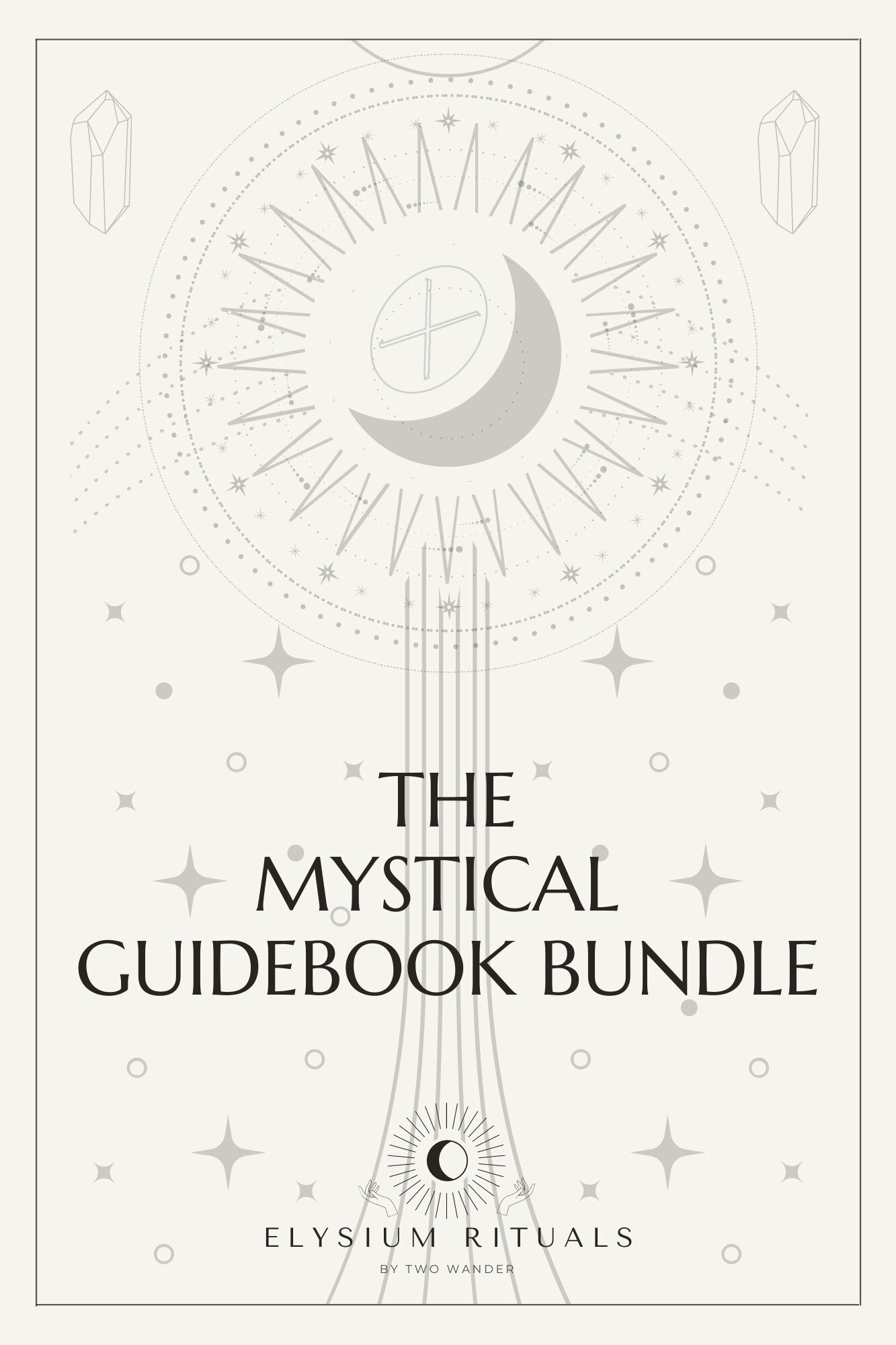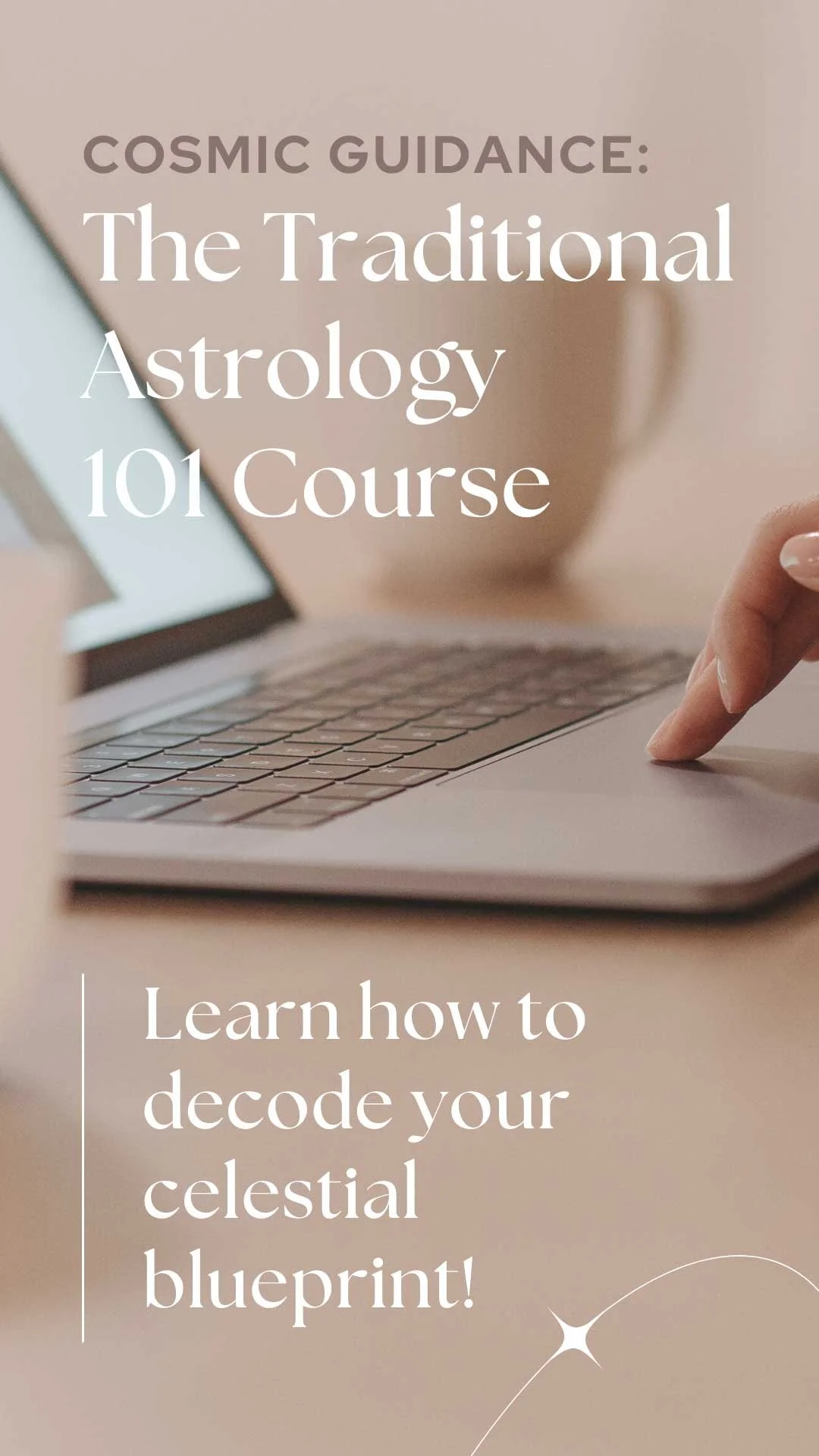What are the Bounds in Astrology?
This post may contain affiliate links, if you purchase through them we may receive a small commission at no extra cost to you. By using these links you are directly supporting us to continue creating free mystical musings. Thank you!
What are the Bounds in Astrology?
The bounds, or Egyptian terms, in Hellenistic Astrology are a subdivision of each of the 12 Zodiac Signs into five unequal parts, each one being sub-ruled by one of the 5 classical Planets (minus the luminaries). They are a method of categorisation in the Essential Dignity schema of a Planet to ascertain its level of strength or weakness, or comfort within a Sign.
For example, the first bound of Scorpio, up to 7 degrees, is ruled by Mars; thus if Mars is at 5º Scorpio in an Astrological Chart, it is not only domiciled and with triplicity rulership (as it is comfortable in Water Signs, especially by night), it is also in its own bounds. (The first 10º (or decan/face) are also ruled by Mars, and so it has even more strength here).
When looking at the different Essential Dignities of a Planet, its rulership or domicile can be seen as its home, its place of comfort, where it is the CEO. Here it can be assigned 5 points if we are tallying up its strength. Then in its place of exaltation it is like an esteemed guest and can be seen as the regional manager or 4 points. In its place of triplicity rulership, it is elementally comfortable and can be seen as the manager or 3 points. In its own bound or term, it has a supervisor’s role, some level of help, or 2 points. And in its decan or face it is like being a senior colleague or 1 point.
Read on for a more details about what the Astrological bounds are:
The Egyptian Terms/Bounds
Using the bounds is a wonderful way to gain an extra layer of nuance and detail in your Astrological interpretation, like adding extra flavour and depth.
For example, Venus in Virgo is “in fall” (-4 points) because it is opposite the place where she “exalts”, in Pisces. Venus is the Planet of love, connection, and sweetness; Pisces is the Sign of empathy and art- naturally Venus does well here. Venus can struggle in the keen eye of Virgo that wants all the facts and figures, answers that require work to parse through; it can also get lost in its quest for perfectionism.
However, Venus also has triplicity in Virgo (+3 points), meaning it does well in Earth Signs, literally representing the fecundity of the land. In the 2nd decan of Virgo (from 10-20º) Venus also rules, and so if falling in the middle of the sign it has some additional support (1 point) to call upon.
And Venus is also bound lord here, 2 additional points, between 7-16º Virgo, so if it is at 12ª say, it has a total of 2 points (-4+3+2+1). Of course, a wholistic Astrological interpretation is not as simple as being reduced to a points system, but it can help conceptually! Here Venus is being assisted by circumstance, she has tools at her disposition even if they are not her preferred ones.
Another way of looking it at it is flavouring the influence of that Sign. For example, between 12-19ª Aries, Mercury is the bound ruler. Aries is a bold, pioneering, fast Sign, Cardinal Fire (ruled by tempestuous Mars). In this bound, Planets here may take on a more mental, Mercurial Aries approach, a syphoning of this energy through thoughts, ideas, and communication. If The Sun were at 19ª Aries (its maximum place of exaltation), it can indicate a brave, forthright character that expresses its courage in the way it speaks.
Mercury in the bound (or decan) of Mars instead may come out more as fighting words, perhaps easily putting its foot in it, speaking before thinking, or sometimes getting caught out by its impulsive spiciness.
Ancient Astrologers, such as Dorotheus of Sidon and Firmicus Maternus, among many others, believed the bounds, and all the essential dignities, to be on almost equal footing with each other. Therefore a Planet in any of its dignified statuses (domicile, exaltation, bound, or decan) was considered powerful, regardless of “hierarchy”.
This influence can be easily seen in the example above where a domiciled Planet can be interpreted as the CEO, but really it is the supervisor (Planet in its bound) that has more of an impact on your day-to-day job satisfaction! How often do you encounter the CEO? Although the CEO would ultimately have the last say, generally you would go to your supervisor first for any issues (then the manager and general manager).
Another excellent example is looking at the Sign as a house. For example Venus owns Libra, and would be the landlord here, and then Saturn, Mercury, Jupiter, Venus, and Mars each have a room within this house. Mars has the smallest room, only occupying 2º, then Saturn has the next biggest room at 6º but is also exalted in Libra thus is like the landlord’s (Venus’) best friend. Jupiter and Venus both have the next biggest rooms with 7º, but Venus is of course the owner of the house so their room might be the loveliest (which is likely being Venus in Libra). Mercury has the biggest room at 8º and it also has triplicity rulership in Air Signs so perhaps is a friend of a friend of Venus or simply feels particularly settled in that house.
You can have your own private space to do what you want when renting but you still have to default to the landlord if you want to make any major changes. You have ownership over this area but are bound to run into the landlord at times (even if they don’t have a room there, such as with the Sun and Moon in their Leo and Cancer houses).
The reason I specify Egyptian terms for the bounds is because there are two other Traditional ways of dividing up the bounds, the Chaldean terms and one set out by Ptolemy. However, already in Ancient times the Egyptian terms are often the most popular choice used, and is my preferred method as well. (There is some evidence that the Egyptian terms may actually be Babylonian due to new cuneiform tablets being discovered dating back to the 4th or 5th century BCE).
Influential Astrologer Vettius Valens wrote delineations for each of the Signs, here is what he had to say about Aries (please bear in mind that ancient Astrologers were deliberately exaggerative):
The Bounds of Aries
“The first 6° of Aries belong to Jupiter: temperate, robust, prolific, beneficent.
The next 6° belong to Venus: cheerful, clever, radiant, even, pure, handsome.
The following 8° fall under the ambiguous influence of Mercury: changeable, clever, idle, windy, stormy, full of thunder and lightning.
The next 5° belong to Mars: baneful, fiery, unsteady, characteristic of rash, wicked men.
The next 5° belong to Saturn: cold, barren, malicious, injured.”
You can read his full Anthologies for free here! Do you have any Planets in their own term/bound?
So that’s an overview of the bounds in Astrology, I hope it’s insightful for you! Let me know in the comments section below if you have anything else to add or any questions.
For a personalised Astrology reading, book in a 1:1 session with me. To uncover the secrets of the cosmos yourself, enrol in my Traditional Astrology 101 course! Or for a small taster, get my Beginner’s Astrology Guidebook.
For a monthly horoscope + more Astro guidance- join me in the EXCLUSIVE Spirit Subscription ✨
And for your own annual horoscope, get your Zodiac Year Ahead Forecasts or the whole Astrology of the Year Report!























